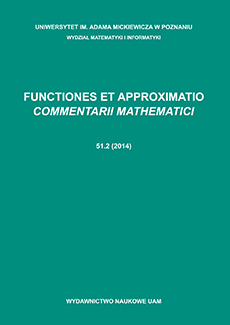Abstract
Let $\ell>2$ be a positive integer, $\zeta_\ell$ a primitive $\ell$-th root of unity, and $K$ a number field containing $\zeta_\ell+\zeta_\ell\inv$ but not $\zeta_\ell$. In a recent paper, Chonoles et. al. study iterated towers of number fields over $K$ generated by the generalized Rikuna polynomial, $r_n(x,t;\ell) \in K(t)[x]$. They note that when $K = \mathbb{Q}$, $t \in \{0,1\}$, and $\ell=3$, the only ramified prime in the resulting tower is 3, and they ask under what conditions is the number of ramified primes small. In this paper, we apply a theorem of Guàrdia, Montes, and Nart to derive a formula for the discriminant of $\mathbb{Q}(\theta)$ where $\theta$ is a root of $r_n(x,t;3)$, answering the question of Chonoles et. al. in the case $K = \mathbb{Q}$, $\ell=3$, and $t \in \mathbb{Z}$. In the latter half of the paper, we identify some cases where the dynamics of $r_n(x,t;\ell)$ over finite fields yields an explicit description of the decomposition of primes in these iterated extensions.
Citation
Thomas Alden Gassert. "Discriminants of simplest $3^n$-tic extensions." Funct. Approx. Comment. Math. 53 (2) 193 - 214, December 2015. https://doi.org/10.7169/facm/2015.53.2.3
Information





